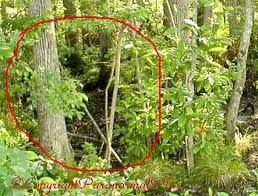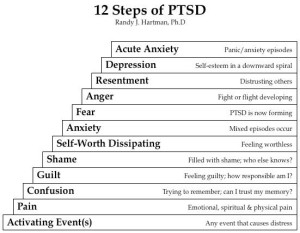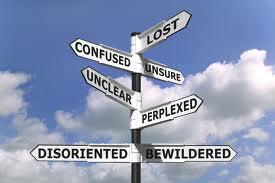 As my family is marching down the path toward recovery, I have been pondering what comes next for my kids. What am I going to be doing after they achieve functional recovery? We’ve addressed or are addressing toxins, pathogens, gut/immune system, and brain function. The road has been really, REALLY hard, but all of our efforts are paying off. I am confident the end of the journey is near.
As my family is marching down the path toward recovery, I have been pondering what comes next for my kids. What am I going to be doing after they achieve functional recovery? We’ve addressed or are addressing toxins, pathogens, gut/immune system, and brain function. The road has been really, REALLY hard, but all of our efforts are paying off. I am confident the end of the journey is near.
Recovery? Has Sugah lost her mind? Isn’t a recovered child the stuff of legend like the unicorn or bigfoot? LMAO!! Sugah is definitely a little crazy, but totally sane when it comes to autism recovery. And I am confident of it. But I remember very clearly the dark days of uncertainty.
TMR recently posted this from Treating Autism on our FaceBook page. It is a document designed and written for traditional medical professionals. It speaks in their language and addresses the long list of potential underlying medical conditions potentially existent in children with the diagnosis of autism. You’ll notice they didn’t directly address the concept of causality which is smart because we all know that traditional medical folks stop listening when you talk environmental factors. They definitely stop listening when you talk about vaccine injury. So I highly recommend everyone prints out numerous copies to take with them each time they darken the door of any medical establishment. This document can also be used as a checklist of sorts. If you are on the path of recovery and are stalled out or are simply plotting a list of next possible moves, this list could be used as a ‘sanity check’ to know if you’ve considered all the potential underlying medical issues with your child.
I would also encourage you to consider thinking ‘differently’ about the journey to recovery. If you are in a place where you feel like you’ve “tried everything and nothing is working!”….trust me…you haven’t tried everything. It is easy to get caught up in the circular trap of testing-diagnosis-treatment. I remember experiencing short-lived improvements and deflated hopes. The definition of insanity is doing the same thing over and over and expecting a different result.
I was inspired by last week’s guest blogger, Cobra. In her blog, she talked about her experience trying something new, Qigong, which had amazing results for her son, because she started asking new questions and thinking differently.
My boys biggest gains and our path to true healing and recovery began after I took a big leap of faith. I won’t bother to write out the story here because our story is identical to the one told by Poppy in Voodoo Magic Sugar Pills.
So back to pondering what comes after recovery.
 Every ending is a new beginning. So what comes next? I don’t think it’s wise to attempt to put autism in your rear view mirror and never look back, (not that you really could). Many autism parents have a close understanding of what it is like to have PTSD. I remember clearly one night hearing my son awake at 3am. We had enjoyed many months of full night’s rest following what felt like years of night-wakings. That night I awoke with a racing heart. I was completely panicked that we were going ‘back’. Back there. Back to the dark place of sleepless nights and knuckle-dragging days. NNNOOOOOO!!!!!! I had to calm down to realize that his waking was merely a temporary reaction to something we were doing to remove the environmental damage caused by vaccines, maternal dental amalgams, our chemical laden food supply, etc etc etc.
Every ending is a new beginning. So what comes next? I don’t think it’s wise to attempt to put autism in your rear view mirror and never look back, (not that you really could). Many autism parents have a close understanding of what it is like to have PTSD. I remember clearly one night hearing my son awake at 3am. We had enjoyed many months of full night’s rest following what felt like years of night-wakings. That night I awoke with a racing heart. I was completely panicked that we were going ‘back’. Back there. Back to the dark place of sleepless nights and knuckle-dragging days. NNNOOOOOO!!!!!! I had to calm down to realize that his waking was merely a temporary reaction to something we were doing to remove the environmental damage caused by vaccines, maternal dental amalgams, our chemical laden food supply, etc etc etc.
We have conditioned ourselves to observe our children on a daily basis like Jane Goodall with a pack of gorillas. We watch their every move, response to stimuli, making correlations to the ever changing balance of our bodies’ internal ecosystems and drawing conclusions as to what changes need to be made, if any, to their physical environment, diet, supplemental or detoxification regimes. Is it possible to just turn all this off like a light switch once recovery happens? I think not. I think there must be a shift from recovery/reprogramming to immune system maintenance. 
“He took an unexpected downturn.”
Either I’m hearing this message more often, or perhaps I’m just now paying attention. There’s a PTA mom I know who had a high-functioning nephew — so high he barely had autism. Out of the blue last year he got sick and can no longer speak. He had an unexpected downturn. He was eleven years old. “The doctors think he must have some sort of virus.”
Then there’s Elizabeth Wray. She lives in the far northeastern US near the Canadian border on a farm. She was a normally functioning teenager. Shortly after her parents brought home a new flock of sheep, she began experiencing extreme PANDAS symptoms. At last report, she was the resident of the psych ward at Children’s Hospital in Boston. Apparently BCH doesn’t recognize PANDAS as an illness that can be treated and therefore considers psych ward placement as the only logical place for her. She took an unexpected downturn.
Then there’s Alex. His mom had been dutifully loving and caring for him, making sure she avoided his numerous food intolerances as she prepared his meals. But one day something happened. Something changed in his internal ecosystem that caused a disruption in his sleep cycle and he began experiencing gastro intestinal distress. All of this began to severely impact his neurological function and behavior. He took an unexpected downturn. These children and their parents are living the nightmare.
I don’t want to live forever in fear of the unexpected downturn. It’s clear to me that achieving functional recovery is not enough. I will need to devise a plan to ensure the ongoing health and optimal functioning of my son’s immune system. His internal ecosystem will need to stay appropriately balanced so that when (not if, but when) it incurs pathogen X, his body will be ready so he doesn’t experience the unexpected downturn.
~Sugah
For more blogs by Sugah click here.



















Would anyone be interested in a mostly recovered online support group? I am still active in the ASD community because I want to help others, but I often feel so alone because my challenges, hopes and fears are different than those starting out or even into over a year into biomed. My child is much higher functioning than Aspergers so I don’t feel like I fit there, but he is still shy of completely neurotypical at 11 years old after regressing into the severe side of moderate ASD at 17 months old.
Wow, just when you think you can rest for a tiny bit… This post reminds me that I really can’t. People ask me all the time, will you ever give him wheat & milk? At first I thought when he was 10… He is 11.5 and I am just not ready - not even with an enzyme. It has been ten years since he ha had any and I just don’t want to mess things up. When you experience heart wrenching regression you don’t want your child or your family to go through that again. He is mostly recovered and the only thing left that may help is chelation and I am terrified of stirring things up specially so close to puberty. All I can do is pray for guidance and thank God there is homeopathy to try to keep him in prime health.
We had an “unexpected downturn” when our trajectory looked so golden. It’s been several years and while we’ve made progress, we’ve never gotten back to that good trajectory. There are too many factors, too complex to explain, that I suspect could be at play but I’m certain puberty (early for all three of my boys) has not done us any favors. It’s very hard to to feel guilty that you are “ungrateful” for the gains, or whether your friends and family (or WORSE yet your child) think you view your child’s progress as “disappointing.”
The truth is I do wish we were further than we are, and further more I projected we’d be further.
We are trying new things but in an ultra sensitive kid who’s had bad reactions to so many things (both natural and rx) it is truly a minefield.
I join you in praying for Alex, my Andrew, and all the kids who have an “unexpected downturn” in eternal hope for their future.
We started full biomed with my daughter at 18 months old. By age 3, she appeared neurotypical to others, however she didn’t start to love and have empathy until age 5.5. In grades 1-3, she exhibited some minor anxiety and seemed to me to be 9-12 months behind her peers socially, although that was hard to tell, since she is the youngest in her grade. She is “exceptionally gifted” and goes to a private, gifted school. She was popular and won the Social Butterfly award at camp. Life was good. We eased up on biomed. We allowed her gluten and casein if she took an enzyme. I started therapy to deal with my PTSD.
Then, a few months before she turned 9, she fell apart. She developed vocal cord dysfunction, OCD (it isn’t PANS, trust me), her anxiety became severe, and she became very, very negative all the time. She can point out problems and mistakes like a boss! Her gut, which was always distended, now looks incredibly, painfully bloated. Her arms and legs are toothpicks and at age 9.5 is the size of a 7 year old. Her height went from the 80%ile to the 10%ile. She stopped growing. At age 9.5, we are starting another huge biomedical push, similar to what we did when she was 2. This wave will include biofilm protocol, GAPS diet, more hyperbaric, and chelation.
I got cocky. I was amazed at how almost completely she had recovered. I didn’t realize how fragile her health really was. I am now preparing her to be responsible for a lifetime of careful oversight of her own health. I wish I had had a better understanding of what to expect in recovery, in terms of ebbs and flows. Maybe this comment will help someone else manage their expectations. To be sure, I am grateful everyday that she can even speak, let alone pass for neurotypical. I just need to get her healthier. Again.
Thanks for sharing your story. It is so important to tell others what can happen down the line. Wishing the very best for your daughter and your family always.
Lioness 🙂
I have thought about this some lately-need to do the same thing. Thanks for the heads-up.
Excellent article! Yes - PTS - and more so GUILT. But anyway, it’s been 6 years since my son has been what I consider fully recovered. And yes, the watching never goes away. Two years ago when he couldn’t interpret sarcasm I thought, ‘here we go.’ But it was addressed over the year with homeopathy and now his humor is very funny (and sarcastic). But I am always note checking against the proverbial “normal.” I doubt it will ever go away. Better watchful than weary. And we still continue a constitutional remedy. With the toxins and poor nutritition, I think it will always be necessary.